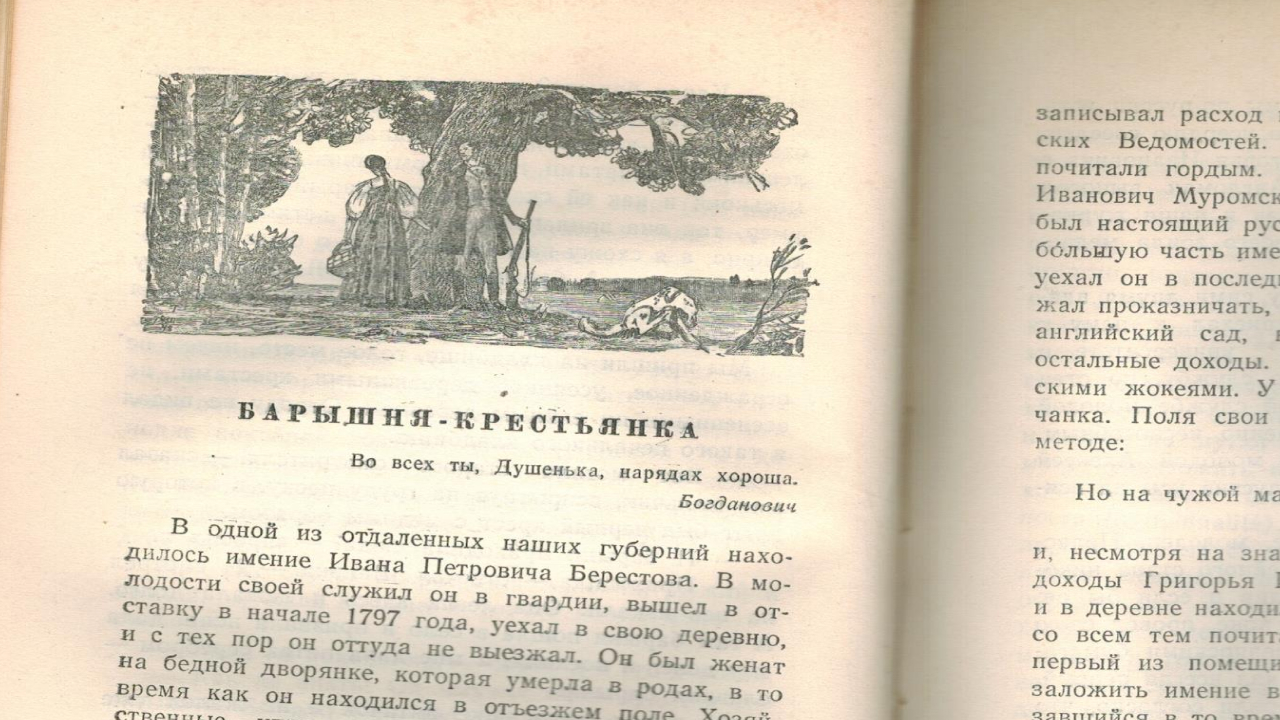“Hello, shall we work together? Apart from the stories mentioned in your letter, Ivan Petrovich left many manuscripts, some of which are in my possession, while others have been used by his housekeeper for various domestic purposes. Thus, last winter, all the windows of her wing were covered with the first part of the novel that he did not finish. The aforementioned stories were, it seems, his first attempt. They are, as Ivan Petrovich said, mostly true and were heard from different individuals. However, the names in them are almost all fictitious, created by himself, and the names of villages and towns are borrowed from our surroundings, which is why my village is mentioned somewhere. This happened not out of any ill intention but solely due to a lack of imagination.
From the publisher. From a letter to the publisher.”
“The Stories of the Late Ivan Petrovich Belkin,” as the cycle of tales is commonly known, is included in the school curriculum and is thus familiar to many of you. Nevertheless, when we were choosing the next book for discussion in our literary salon, the suggestion to read Belkin’s Stories was enthusiastically accepted. The discussion itself was quite lively.
By the way, on December 14th, we decided to switch from Pushkin to Lermontov and read his novel titled “A Hero of Our Time,” which is also available in our library.
So, let’s return to Belkin. These stories are among Pushkin’s first completed prose works. The history of their writing goes like this: Alexander Sergeevich found himself “confined” in the village of Boldino due to a cholera epidemic. This happened in the autumn of 1830.
Autumn and the countryside always had a favorable influence on the poet. During that time, he had completed the poetic novel “Eugene Onegin,” written over 30 poems, and several other works, including this famous cycle.
Each story can be read as independent since they are not connected to each other. What ties them together is not a unified plot or characters but rather the narrative style: they are written in simple language. Critics of that time, including Belinsky, referred to the stories as a decline in talent: “simple, unpretentious fables, certainly not shining with originality.” These stories can confidently be attributed to realistic literary prose. They are written so vividly that the events described could have very well taken place.
It is known that initially, the Stories were not published under Pushkin’s name and were attributed to a certain author, the same Ivan Petrovich Belkin.
Who was this Belkin? In a letter to the publisher, a portrait of the “author” is provided “in the tones of good-natured humor and subtle irony” (Here and further from the article “The Prose of A.S. Pushkin” by D.D. Blagoy).
Pushkin continued and elevated attempts to depict the common man in artistic literature.
Blagoy notes in his article that the Stories “distinguish themselves by the remarkable economy of their artistic means.” Indeed, there is nothing superfluous in them. They are concise in content and rich in meaning. Without unnecessary introductions, the narrator acquaints the reader with the characters and leads them into the events.
Answer the questions to check how carefully you have read “The Tales of the Late Ivan Petrovich Belkin.”
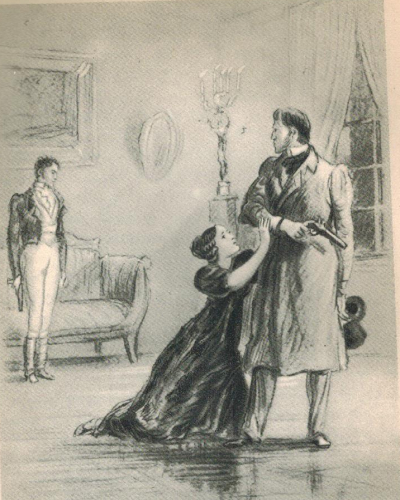
“Выстрел” (The Shot)
- What shortcoming were young people least forgiving of?
- … there is an important period for rural residents. Landowners and their servants discuss the events of that month two months prior and three years later. What event is being referred to?
“Метель” (The Blizzard)
- What prevented Maria Gavrilovna from marrying Vladimir?
- Barumin left, and the old woman crossed herself and thought: perhaps the matter would be finished today. What matter is being referred to?
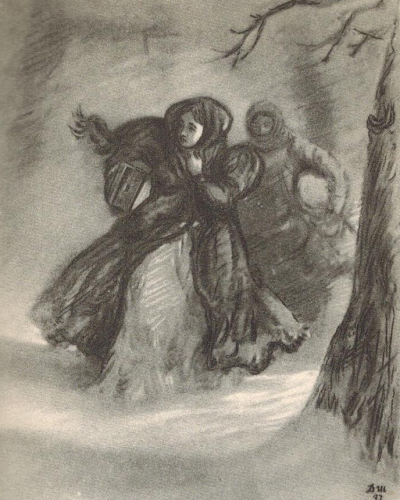
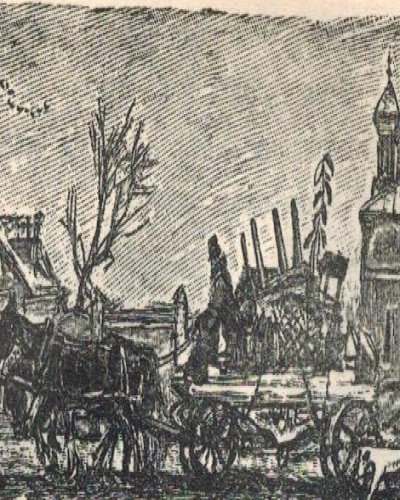
“Гробовщик” (The Undertaker)
- What is the composition of the undertaker’s family?
- He silently waited for the worker to start a conversation with him and announce the consequences of the night’s adventures. What did the worker tell Adrian Prokhorovich?
“Станционный смотритель” (The Stationmaster)
- Such maligned stationmasters, in general, are what kind of people?
- What was the name of the stationmaster’s daughter?
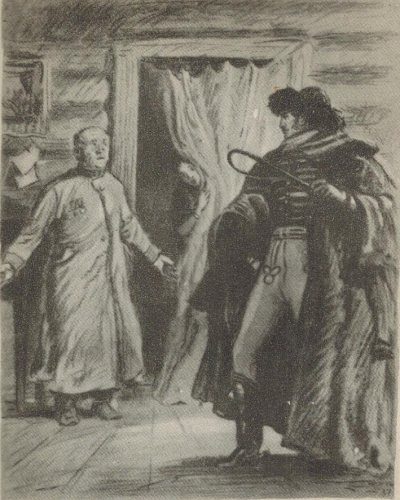
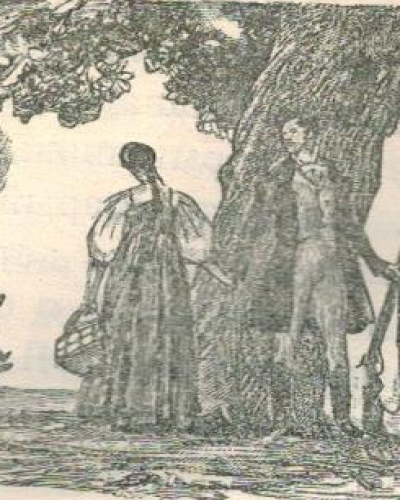
“Барышня-крестьянка” (The Squire’s Daughter)
- What was the cause of Berestov’s enmity with Muromsky?
- “Everything will be settled,” he thought (Alexey), as he approached the drawing room, “I will explain it to her (Lisa) myself.” He entered … and was petrified. What did Alexey see in the drawing room?

